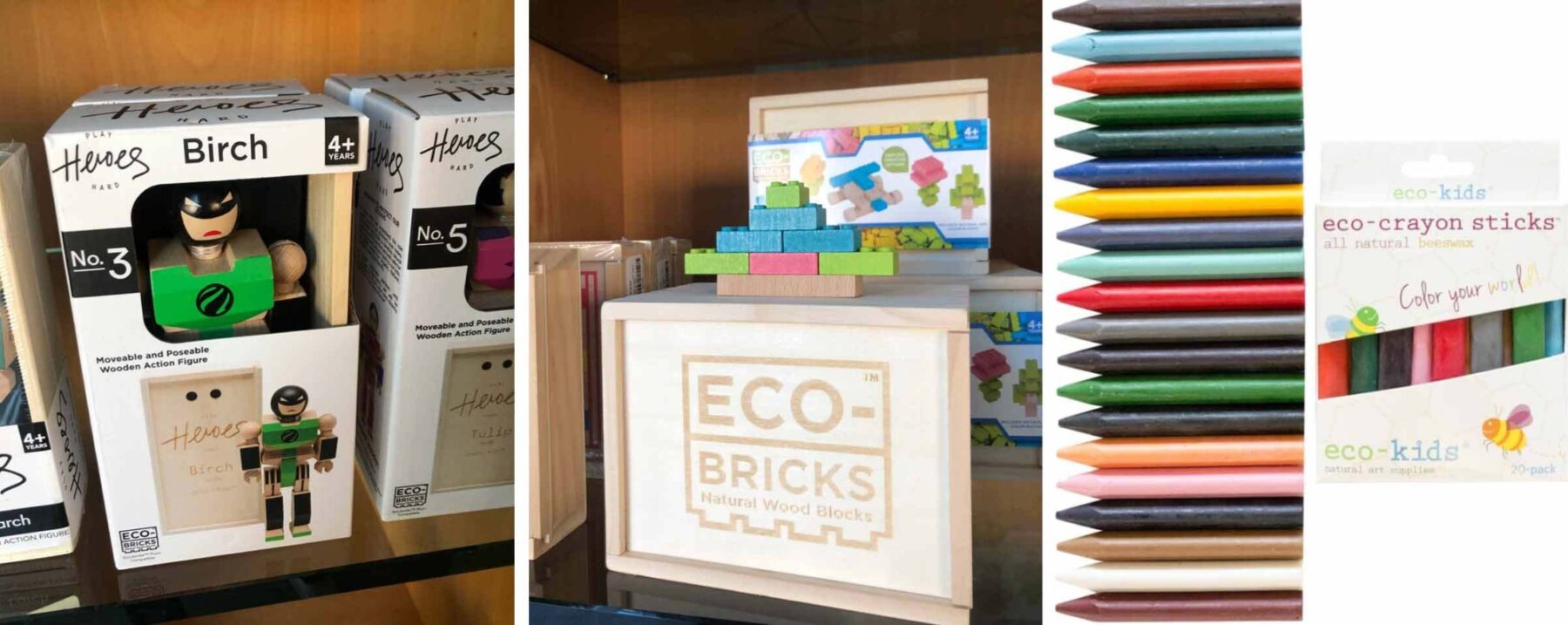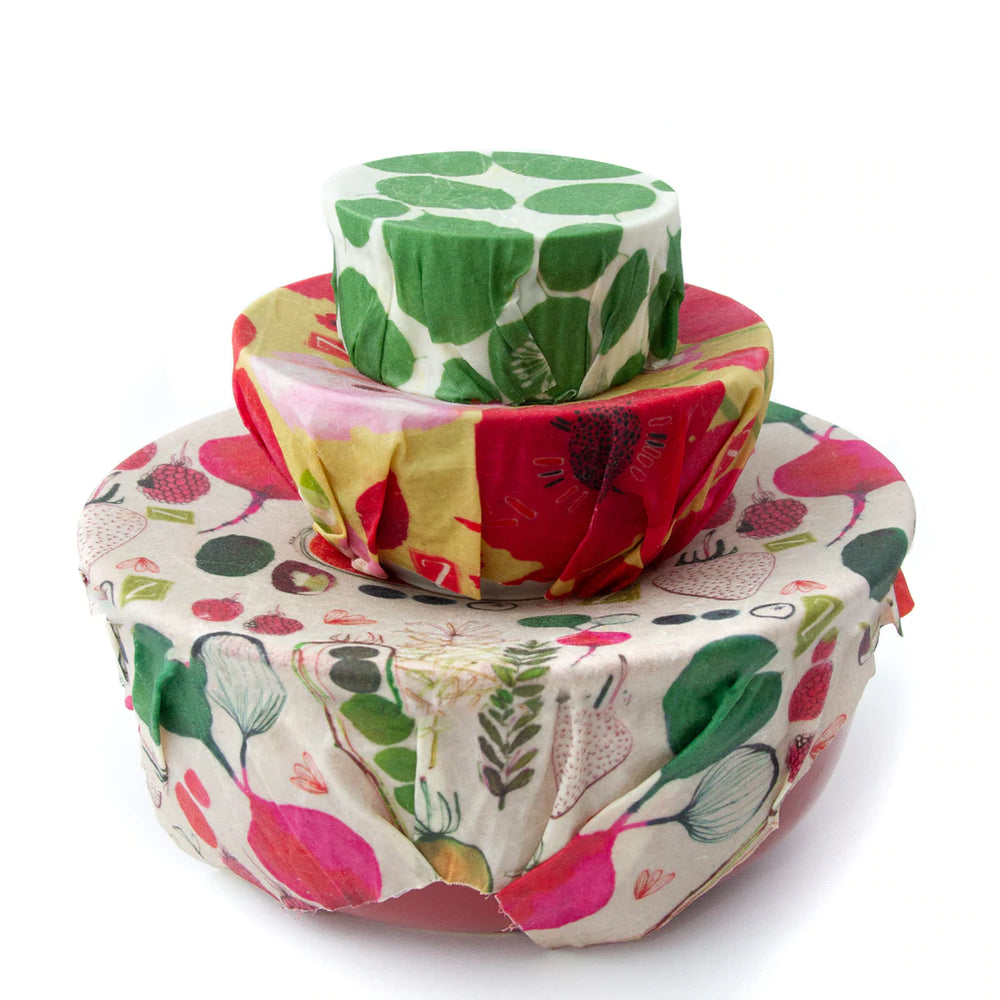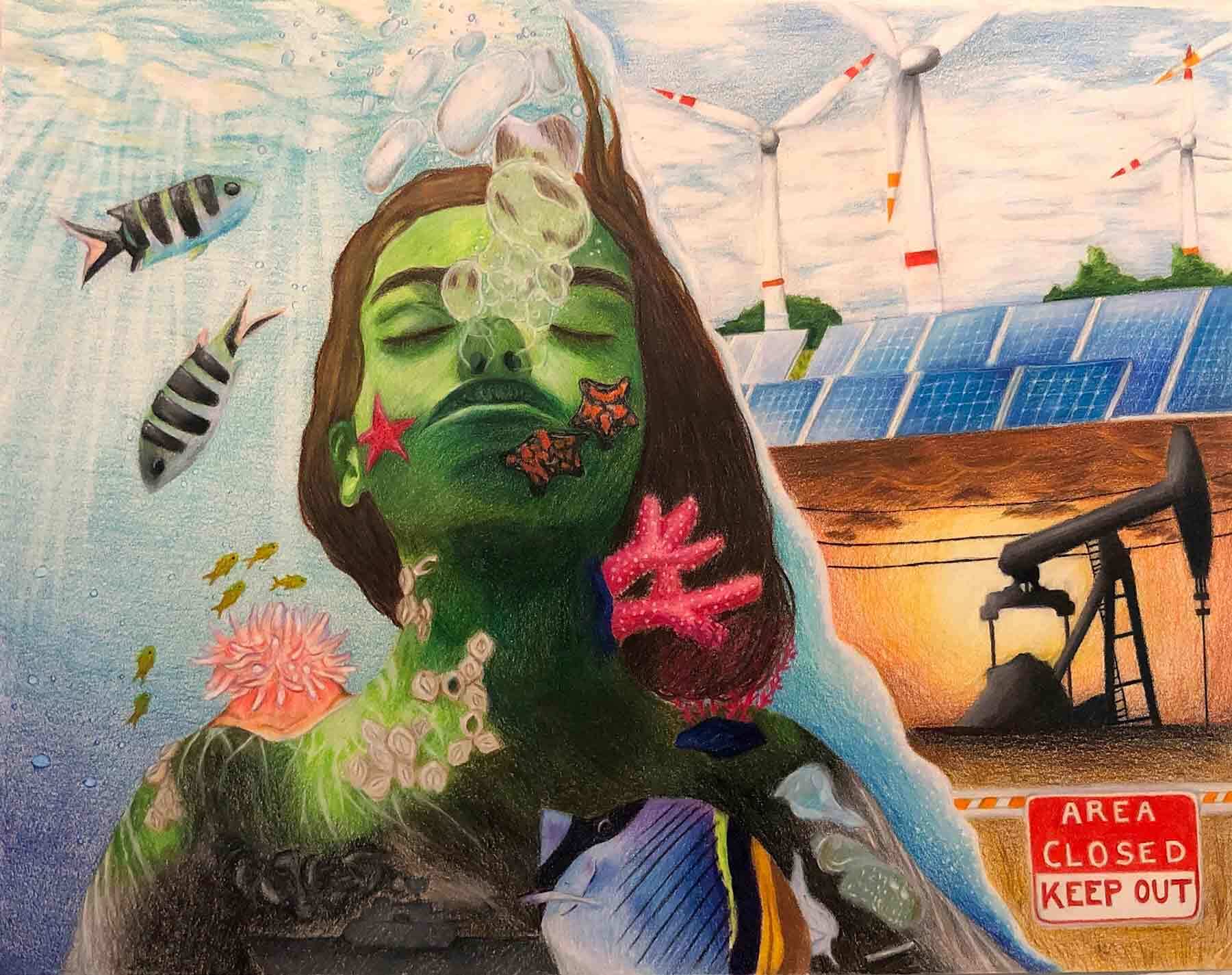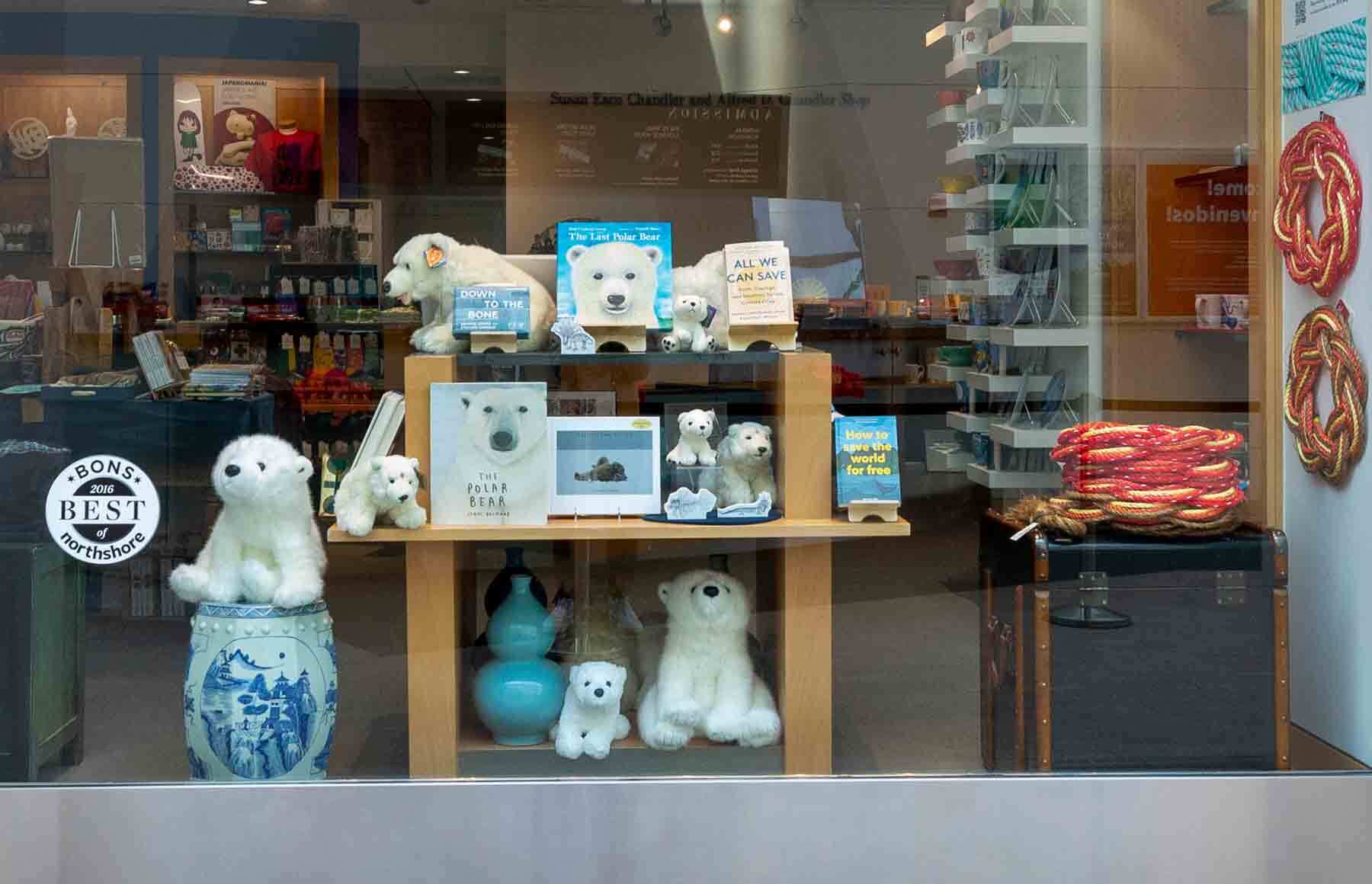Making a Commitment Toward Sustainable Retailing in the Museum Shop
By Victor Oliveira, Director of Merchandising, Peabody Essex Museum
This post first appeared on Connected, the blog for the Peabody Essex Museum in Salem, Mass.
A thought-provoking comment was made in a recent conversation with a colleague regarding sustainable retailing in museum stores: “Oh yes, that’s a big trend.” As well-meaning as that statement was, in context, the use of the word “trend” gave me pause. Because trends are things we exploit, they are momentary market blips that inform a retail buyer of “what’s hot” and what their customers are looking for, and ultimately they are short-lived and have an end.


Image caption: At the Museum Shop, there are natural wooden Eco-Bricks (a good alternative to Legos), Little Hero action figures named after trees (think birch and spruce instead of Batman or Iron Man), and plush nature-related toys from Wild Republic. There’s also bold-colored Eco-Crayon beeswax sticks and football and soccer balls made from natural jute and rubber tree fibers
That encounter made me realize that I had been thinking about sustainability exclusively regarding the end product for a merchandising presentation. I was looking for products made of a renewable resource that can be composted or made of organic materials, which is essential, but only one piece of the puzzle. So it has forced me to think about sustainable practices in retailing and sustainable products, which is an operational paradigm shift, and a commitment.


Image caption: Z Wraps is a woman-owned company based in Massachusetts that specializes in beautiful, sustainable and environmentally-friendly plastic wrap alternatives.
I have been dipping my toe in the water of sustainable retailing in Boston museums for some time now. And I say that because I am still researching, trying to find the intersection of commerce and responsibility to our ecosystem. So, that is to say, I’m not a leading expert here as we all try to figure out this issue. What I have been attempting is to find a sustainable model that still attains the goals of a museum store, and we still have a lot of work yet to do.
If one believes in the idea of fate, it landed me in the perfect place to start making some headway in proving a sustainable retail model. The Peabody Essex Museum is an ideal hybrid of many different disciplines for lack of a better term. I would not call it exclusively an art museum, or a museum of the sciences, humanities, history, and culture, because it is all of those things and more. It’s a museum dedicated to how we live, have lived, and look forward to how we might do so in the future. Together, the collection reveals how we create, trade, dress, worship, and the list goes on. It makes us understand how the simplest of choices we make today are significant as they will help tell the story of this generation.


Image caption: Stephen Gorman, Lamentation, 2017. Pigment print. Courtesy of the artist © Stephen Gorman.


Image caption: Edward Koren, Goodbye, My Friends, 2018. Graphite on paper. Courtesy of the artist © Edward Koren.
By the time the upcoming Museum Store Association (MSA) conference takes place this May in Boston, PEM will be exhibiting no less than four shows that confront us with environmental issues and climate crises. Down to the Bone pairs award-winning nature photographer Stephen Gorman and New Yorker artist Edward Koren in their responses to the consequences of destabilizing our natural environment and their alarm about the global climate crisis. This exhibition creates connection and empathy for creatures, real and imagined, who suffer because of our human behavior. Ultimately it grants us food for thought about the impact of how seemingly insignificant choices we make every day ripple beyond our circles of existence. And what is brilliant about the timing of Down to the Bone is that it is an essential segue to PEM’s Climate Action: Inspiring Change exhibition, which features youth artists countering the idea of hopelessness by inspiring change and empowerment.


Image caption: Jennifer Liu, Out of Time, 2020, Colored pencil on paper. Courtesy of Bow Seat Ocean Awareness Programs, Inc.
So, I feel inspired and empowered to change the way I work, to ask new questions when I go to market. How and where was it made? What’s the manufacturing process? What are the materials? Are they nontoxic to the environment? Are they degradable? What is the product life cycle? Is it over-packaged? And even delving down to, how is it packed, what are the packing materials? The encouraging part of all this is that I have found that many vendors are already working to answer these questions. And I believe as buyers that the more we raise the dialogue, the more responsive makers will be to advance their plans to create sustainable models.


Image caption: The Down to the Bone display in the Museum Shop.
At the same time, our customers are also starting to ask the same questions. Many articles and statistics back up the idea that consumer behavior is heading in a sustainable direction. Here are some statistics from a recent report in Forbes:
Google’s search interest in “ethical brands” and “ethical online shopping” during 2020 grew 300 percent and 600 percent compared to the previous year.
- 1 in 3 shoppers stopped purchasing certain brands or products due to ethical or sustainability-related concerns.
- Nearly 6 in 10 consumers say they are willing to change their shopping habits to reduce environmental impact.
Data like this suggests that it’s also smart business to develop sustainable retail models, and I believe the museum stores can lead the charge. But again, I am not an expert in sustainable practices. For all the changes we have made in the PEM Shop, like eliminating plastics in goods aimed at kids, researching organic materials or saying goodbye to items that sell well but are horrible for the environment, we have a lot more learning and work to do.
So I am pleased that my colleagues will have the chance during MSA FORWARD Boston to hear directly from some of the partners that I have learned from along the way. I will be joined by Jane Winchell, Director of PEM’s Dotty Brown Art & Nature Center. Together, we can work locally, right in our own space, to make changes that will reverberate out into the world.
Top image: Handcrafted in Nova Scotia, Canada, on the shores of the Bay of Fundy, these durable wreaths from All For Knot Rope Weaving Inc. are made from recycled lobsterman rope.. Photo by Kathy Tarantola/PEM.


Victor Oliveira has over 25 years of experience in cultural and entertainment retail development. Victor has created retail experiences at the ICA Boston, The Isabella Stewart Gardner Museum, Boston Museum of Science, and the Peabody Essex and designed products and retail settings that meet the needs of the modern cultural tourist. Victor has also worked for MTV Networks in creating online retail experiences for its Nickelodeon brand. He also has a deep reach into the publishing industry in producing and promoting books for writers. Victor has been advocating sustainable models and practices within cultural institutions and attractions.
Learn more about Victor’s sessions at MSA FORWARD 2022: Sustainable Retailing: Commitment vs. Trend (Friday, May 20, 4:30 pm) and Do Museums Need Stores? (Saturday, May 21, 2:45 pm)
